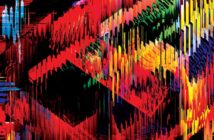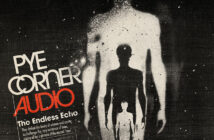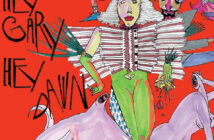
For the last few years, I’ve been listening to and reviewing Marcus Whale’s collaborations with others, always with an ear out for which bits could be identified as his within those works. Both Thomas William vs Scissor Lock and Collarbones obviously bear the traces of what could be considered the Marcus Whale aesthetic, especially to my ears; Broken English was the first of his works I consciously absorbed and his solo, Scissor Lock shows were the first context in which I saw and heard him. It’s therefore a little strange to be listening to the first new Scissor Lock work since Broken English and finding myself analysing just what Whale has brought from those collaborations into his solo work.
The most obvious aspect is that there are regular, rhythmic, drum machine patterns across Churn. Granted, those pulses are often outrageously sluggish, the title track throwing up almost comatose r’n’b which feels like it’s wading through honey in order to create forward momentum. But, beats they are, and their presence adds a new layer to the regular processed voices which are the signature of Scissor Lock.
Voice is where the other new development lies. Broken English was a towering ode to abstract, disembodied voices. All of those layers are still present on Churn, but there are other, far less detached vocal elements as well. Rather than purely layers of texture, some of the vocals here are what can only be described as regular singing. No longer disembodied, raw human emotion is present, even if the words themselves are rendered mostly unintelligible. Whale himself has said that some of these lyrics are the most raw and honest he’s written, though admits the processing of them makes the lyrics hard to discern. Nonetheless, the sound of the voice carries great emotional weight, particularly contrasted against the backdrop of textured, layered, abstract voices.
Yet the whole work still ends up very much as a solo, Scissor Lock piece. Track lengths are shorter than before, but still generally stretch beyond the pop lengths of Collarbones tracks. They are allowed to breathe and develop, the layers of hissing, digital sounds build slowly and epically. Whale has not lost his identity but he has allowed the influence of others to stretch and pull that identity into new territories. Coming, as it does, so close on the heels of the recent and critically acclaimed second Collarbones album, it shows Whale as a restless creator with a need to grow, flirt with the (semi)mainstream yet still keep his avant-garde impulses in full effect.
Adrian Elmer



